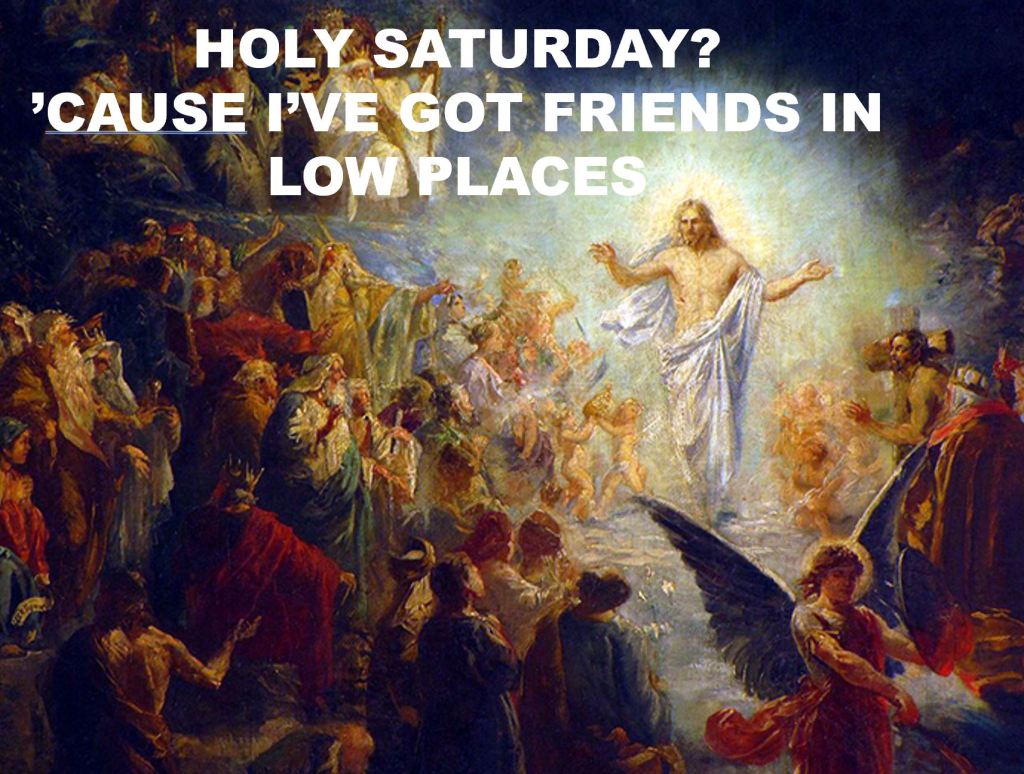Every year, I’m asked about where Jesus was or what he was doing on Holy Saturday. This meme pretty much sums it up even if in a humorous way. Jesus descended to sheol, the place of the dead out of love for others. The primary scriptural reference is from Peter 3:18-20:
“For Christ also suffered for sins once for all, the righteous for the unrighteous, in order to bring you to God. He was put to death in the flesh, but made alive in the spirit, in which also he went and made a proclamation to the spirits in prison, who in former times did not obey, when God waited patiently in the days of Noah, during the building of the ark, in which a few, that is, eight people, were saved through water” (NRSV Translation).
Christians debate what translated words to use. Did he descend into sheol, hell, or to the dead? That’s just a matter of translation. They also wonder about him coming victoriously or whether he still suffered? That is ultimately a holy mystery. What we do know is that Jesus experienced death fully, and even in death, he came to open heaven to those who trusted in God.




